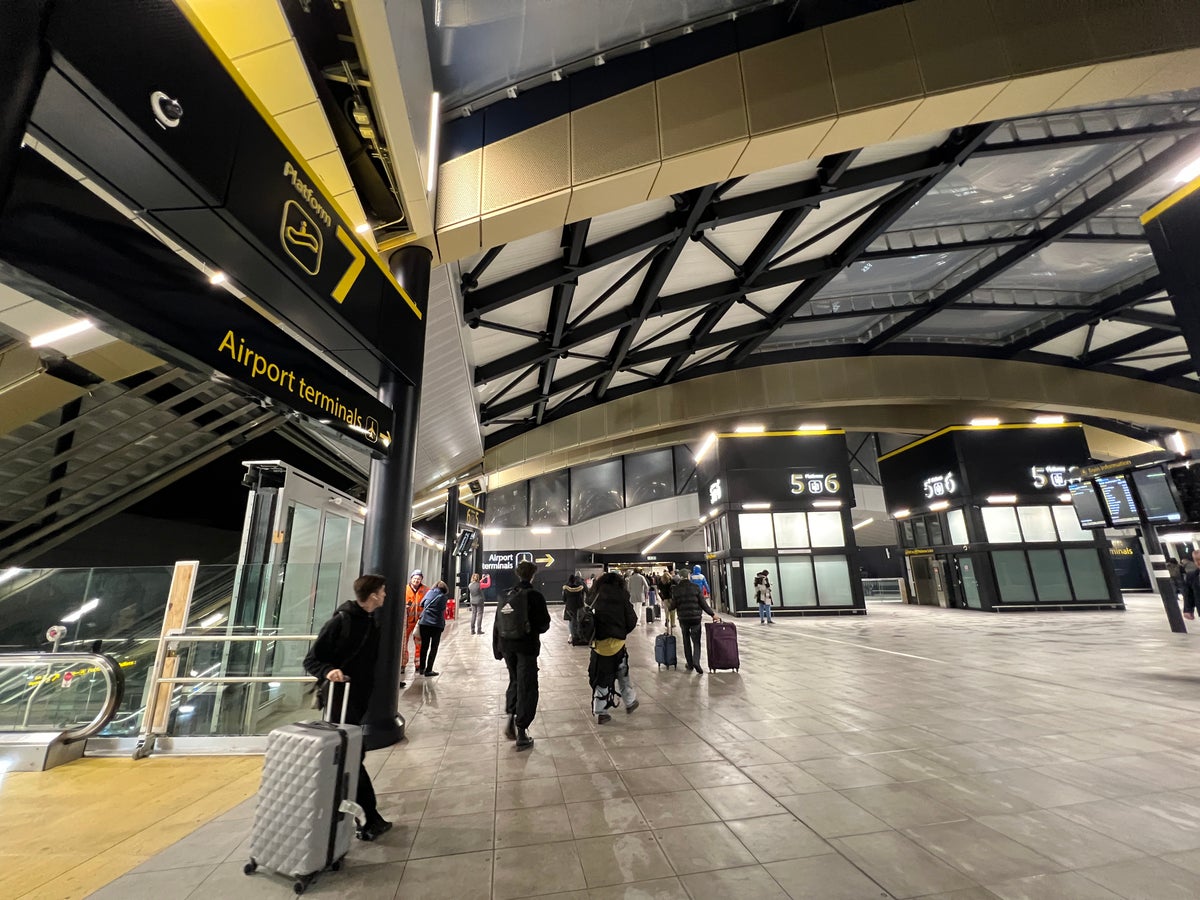
Gatwick airport station’s new arrivals area has opened – with a promise to transform journeys.
The £250m project, which forms part of Gatwick’s South Terminal, welcomed its first train at 5.46am on Tuesday. Passengers on the Thameslink service from Bedford via central London were able to use new high-capacity lifts and escalators to reach a newly created arrivals space – which has been built above seven platforms on one of the busiest railways in the country.
The experience is very different from the previous crush as passengers were funnelled into facilities built in the 1960s, when Gatwick handled around 4 million passengers a year. The Sussex airport now has more than 10 times as many, but rail station facilities have long been inadequate for the volume of travellers.
With no congestion from passengers walking in the opposite direction, the platform-to-terminal journey for most will take less than a minute.
Meanwhile people arriving on the first wave of inbound flights from Addis Ababa, Doha and New York enjoyed sole use of the rail departure concourse, which previously was shared with incoming train travellers.
Speaking exclusively to The Independent, Gatwick’s chief executive, Stewart Wingate, said: “It’s been a long time coming. We’ve been working on it with Network Rail from 2015 and it’s fantastic to see the new station open for passengers to use.
“Passengers will see an enormous difference. About 40 per cent of our passengers and staff get to and from the airport by train.
“In the future, we’d like to see as many as 60 per cent of our passengers and staff get to and from the airport by sustainable travel options.”
Before the Covid crisis, Gatwick’s station was one of the 20 busiest in the UK, with many more passengers than key hubs such as Liverpool Lime Street and Cardiff Central.
Passenger numbers reduced drastically during the pandemic, but are now returning in droves – with some European links above 100 per cent of pre-Covid levels.
Jordan Gill, principal architect at Systra, who designed the station, said: “We were set the brief by Network Rail to really solve three problems. We had issues with safety, congestion and the passenger experience at Gatwick.
“The key thing we’ve done here is to create this new concourse space as a welcome to Gatwick airport.
“Previously all traffic – both arriving and departing passengers – would leave through the old concourse built in the 1960s, that hadn’t received any upgrade work for at least the last 40 years.
“If people just walk through here and get that nice feeling about the airport, then I think we’ve been successful because the point is to move people safely and efficiently into the airport space.”
The space constraints involved in the 1960s station have not been completely overcome, with large numbers of passengers continuing to build up on platform 4, the main departure location for central London. But new track work means that more platforms can be used for both north- and southbound trains, allowing crowds to be somewhat dispersed.
Currently 15 trains run to London every hour: to both Victoria (terminus for Southern and Gatwick Express) and the Thameslink line via Blackfriars to St Pancras.
Gatwick also has direct trains to the capital and onwards to Cambridge, Peterborough and Bedford, as well as to Brighton and the rest of the south Coast. There is also a link to Reading for connections to the west of England.
Listen to Simon Calder’s podcast report from the new Gatwick station







